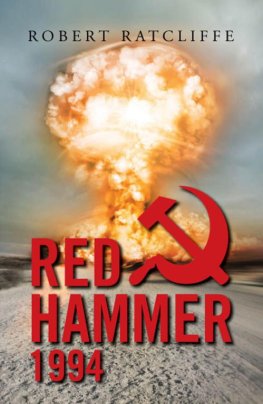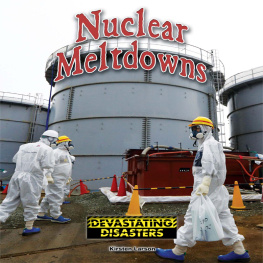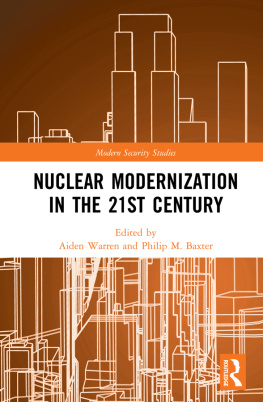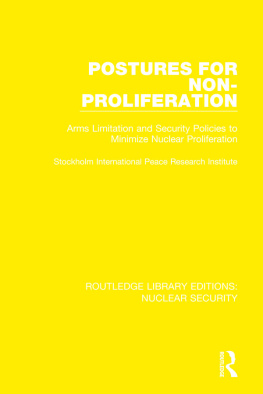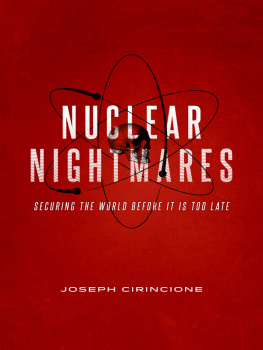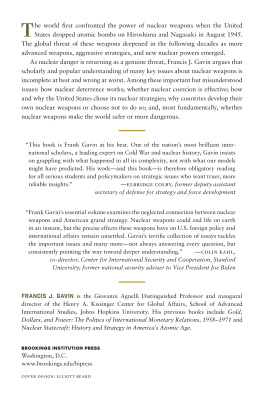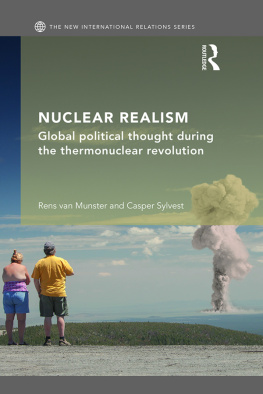Robert Ratcliffe
RED HAMMER 1994


CHAPTER 1
Marlina Tatralova collapsed, overcome by anguish. Tears streaked her reddened, wind-chapped cheeks. She stared blankly at the graffiti-covered, red brick walls surrounding the Uralmash Zavod factory in Yekaterinburg, Russia. It was true, just like the gossips had said at the butcher shop, the one that hadnt had any meat for six months. Marlina saw through frightened eyes that the factory gates were locked for good. A dozen or so surly looking men roamed the cluttered grounds, apparently to keep potential looters at bayas if there was anything worth taking.
Marlina cowered like a beaten child, an empty plastic shopping bag at her side. She rocked on her haunches, each breath labored, surrendering to the dark forces that had crushed her unmercifully. What did the politicians want? Blood? The fools in Moscow did nothing but strut like peacocks and bicker and then make bold promises that were no better than lies. She couldnt begin to fathom the intellectual downpour that tormented her meager existence. Free markets, participatory democracy, hard currencies, private ownership, these words were nothing but gibberish to the common Russian. Outside of Moscow proper, the people lived like animals.
The ominous slate canopy that smothered the rugged Urals seemed particularly threatening this fall day. As usual, the climactic monotony was intensified by the cold drizzle that seeped into the drab, poorly constructed apartments and filled the interiors with the pungent odor of mildew and wet wool clothes. The black mood suited this dismal industrial city that brooded like a condemned soul. Everyday life in Yekaterinburg had ground to a halt.
Founded by Stalin in 1933, the onetime showpiece factory town had bolstered the old Soviet Unions power and prestige during the difficult, formative years. Throughout the Great Patriotic War, Uralmash Zavod had churned out sturdy T-34 tanks by the hundreds to beat back the vicious German invaders and lead the Red Army to victory. Production hummed unabated for decades, both with military hardware and heavy construction equipment, and promised cradle-to-grave security for the thousands of tough workers who braved the frontier city with its substandard housing and brutal weather.
But past glory had vanished into confusion, panic, and recrimination. It hadnt been American bombs or tanks, as the propagandists had direfully predicted for so many years during the Cold War. Instead, mysterious and insipid free-market forces and muddled economic reforms had done the deed. They had sapped the life from Uralmash Zavod, like an infectious disease that rotted the innards while leaving a crumbling shell to serve as a testimonial to their collective failure.
Production had fallen precipitously to less than a third of its 1980s peak, when the 39,000 workers churned out modern T-72 and T-80 main battle tanks and massive oil-drilling rigs that rivaled the best produced in the West. After lingering for a few years on life support, the final deathblow for the diseased patient had been the complete and rapid deregulation of energy pricesa capricious and callous edict that had been like a dagger to the heart. The bureaucrats in Moscow had convinced themselves that it had to be done. Soaring fuel-oil prices had beaten them into the ground, as easily as a steam-driven pile driver pounding steel girders.
Sister cities throughout Russias industrial heartland had suffered the same irreversible fate. The supposedly sympathetic Western press called it a necessary and quite natural initiation, a much-needed slap in the face, and a tough dose of medicine for those who would enter the competitive world economy on the threshold of the twenty-first century. The Russian people called it betrayal. Like shell-shocked war victims, they drowned their sorrows in copious servings of alcohol and prayed for someone, anyone, to rescue the struggling nation from the twin evils of runaway inflation and looming starvation. Dreams of democracy quickly vanished when competing with empty stomachs and the fear of starvation.
The Western political dynamic was impossible for the average Russian to fathom. For decades, their world had been a rigid one of necessary order and accepted struggle. But if one had performed his or her obligation to the state, they would be cared foralbeit at a standard of living that would make those in the West groan. But in the early nineties, they had been cruelly seduced by the Westerners constant covetousness for material possessions, a fatal diversion from the path of socialist purity, that had lead them straight to economic hell.
Marlina glanced up through salty tears at the high-bay factories and shops. What was left of the old plant? Machinery so antiquated that Uralmash couldnt compete with the rest of the world, even if her workers labored for free. The arthritic plant required hundreds of millions of dollars of scarce capital to even contemplate the task of rebuilding. And who would lend such vast sums? Not the West. They were greedily pouring money into the Eastern European nations, those despicable ingrates. For decades their socialist brothers had sucked up Soviet largesse in the form of nearly free fuel and blanket military protection, and now they thumbed their noses at their erstwhile friends. The capstone of humiliation had been when Poland, Hungary, and the Czech Republic had begged their way into NATO.
Marlina shivered uncontrollably with raw fear. Unemployment was a sentence of near death, a perpetual, grinding poverty with absolutely no escape. No so-called safety net existed in Russia; the state was bankrupt, the rubleworthless. She tugged at her worn and faded wool sweater. The first signs of winter loomed on the horizon; a stiff breeze carried the telltale frigid air from Siberia. The cold wind bit her cheeks and made her shudder. It would be a long winter; the worst in memory they predicted. As usual, it was the common people who would pay the price for the bureaucrats arrogance and incompetence.
Marlina sniffed and wiped her nose and stood, adjusting her damp scarf and rumpled skirt. Drying tears stained her cheeks. She staggered in the direction of her miserable apartment, wishing beyond hope that someone could bring back the old days. Who would save them, save Russia? Marlina shook her bowed head sadly and shuffled along in a very Russian mixture of stoic acceptance and steadfast perseverance in the face of insurmountable odds.
The gloating, stiff-necked man with short-cropped gray hair preened. He sat pompously in his anointed chair in the section reserved for members of the Liberal Democratic Party. Actually, there was nothing in the least democratic about this gang of thugs. Once a hodgepodge of ultranationalists, neo-fascists, revanchist Stalinists, and a sprinkling of monarchists, the Liberal Democrats had deftly closed ranks and were now just hitting their stride. They had gained long-sought legitimacy through their recent smashing victory. No need to any longer kowtow to coalition partners. Nikolai Laptev had seen to that.
Over time, the more faint-hearted LDP members, those deputies lacking the stomach for a knock-down, drag-out fight, had been pushed aside to make way for the fire-breathers. The crowning glory in the early years had been the pact with the Communists and the agrarians. While those simpletons dreamed of the old collective days and Potemkin villages, the Liberal Democrats had used their votes to thwart reform and paralyze the government. Disaster led to disaster, until the government had collapsed. A sham presidential and parliamentary election had thrust Nikolai Laptev and his cohorts from the role of noisy and troublesome opposition to the seat of unchallenged power. Russias Choice and the other so-called reformers were in tattersdiscredited, chastened, and on the run.

